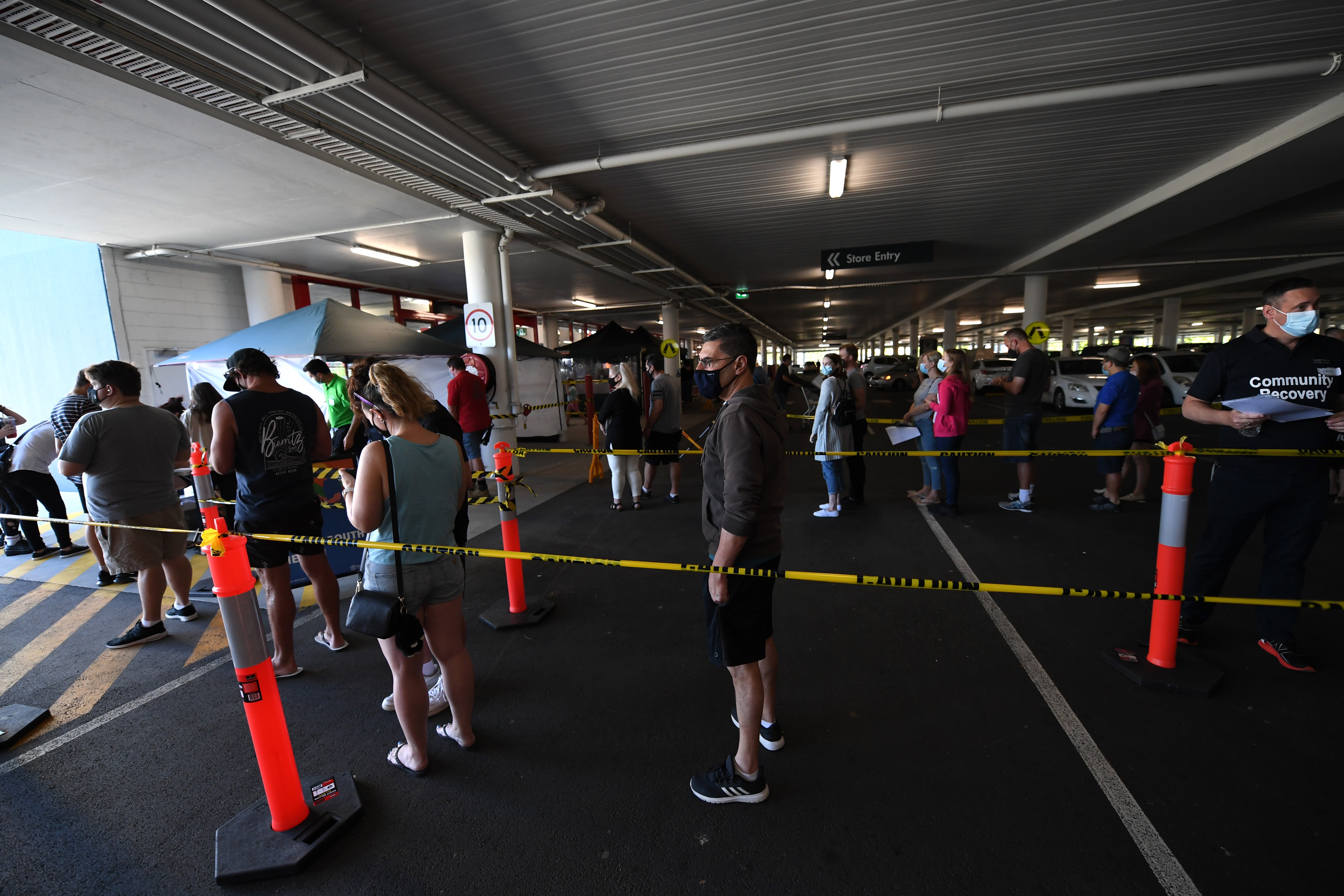Covid: Australia suffers deadliest day of pandemic fuelled by Omicron outbreak
Australia recorded 73,000 Covid infections and 77 deaths on Tuesday

Australia reported a record number of Covid-19 deaths on Tuesday as a surge led by the highly-infectious Omicron variant continued to increasing pressure on the medical infrastructure.
According to the official data, a total of 77 deaths were reported on Tuesday, surpassing the previous grim milestone of 57 deaths last Thursday.
“Today is a very difficult day for our state,” New South Wales (NSW) premier Dominic Perrottet said at a media briefing as the state reported 36 deaths.
High rates of hospitalisation have also been recorded in the country though the number of daily infections have eased. Australia reported about 73,000 news infections on Tuesday, down from a high of 150,000 last Thursday.
Overwhelmed by the surge in cases, the federal government is activating a private hospitals agreement, as part of its Omicron response plan, reported 7 News. Under this agreement, up to 57,000 nurses and more than 100,000 support staff would join highly-affected areas.
Health minister Greg Hunt also activated the national medical stockpile to ensure there are no shortages of personal protective equipment (PPE). Under this plan, health facilities around the country would be supplied with upto ten million units of PPE, rapid antigen tests, masks, surgical gowns and gloves.
Meanwhile, Victoria declared a code brown emergency across hospitals in Melbourne and six other regions, reported the Australian Associated Press. The measure will begin at midday on Wednesday, acting health minister James Merlino said, adding that it could last from four to six weeks.
Hospitals in Victoria will now be able to postpone or defer less urgent care, and re-assign some personnel. Staff can also be recalled from leave, and offs can be cancelled if “absolutely necessary”.
Mr Merlino said that the state’s hospital system is dealing with “extreme pressure” due to staff shortages, as more than 4,000 healthcare workers are isolating themselves after either they or their close contacts tested positive for the infection.
The surge in daily cases has also propelled politicians to urge the general public to get the booster dose against Covid infections.
“There needs to be a sense of urgency in embracing the booster doses,” NSW chief health officer Kerry Chant said. “For Omicron, we know that the protection is lower and we need that next boosting to get that higher level of protection.”
The health crisis has also led to a slump in the approval rating of prime minister Scott Morrison. Australian voters are losing confidence in Mr Morrison and the Liberal-National Party coalition, according to a survey by the Resolve Political Monitor.
Additional reporting by agencies
Subscribe to Independent Premium to bookmark this article
Want to bookmark your favourite articles and stories to read or reference later? Start your Independent Premium subscription today.

Join our commenting forum
Join thought-provoking conversations, follow other Independent readers and see their replies